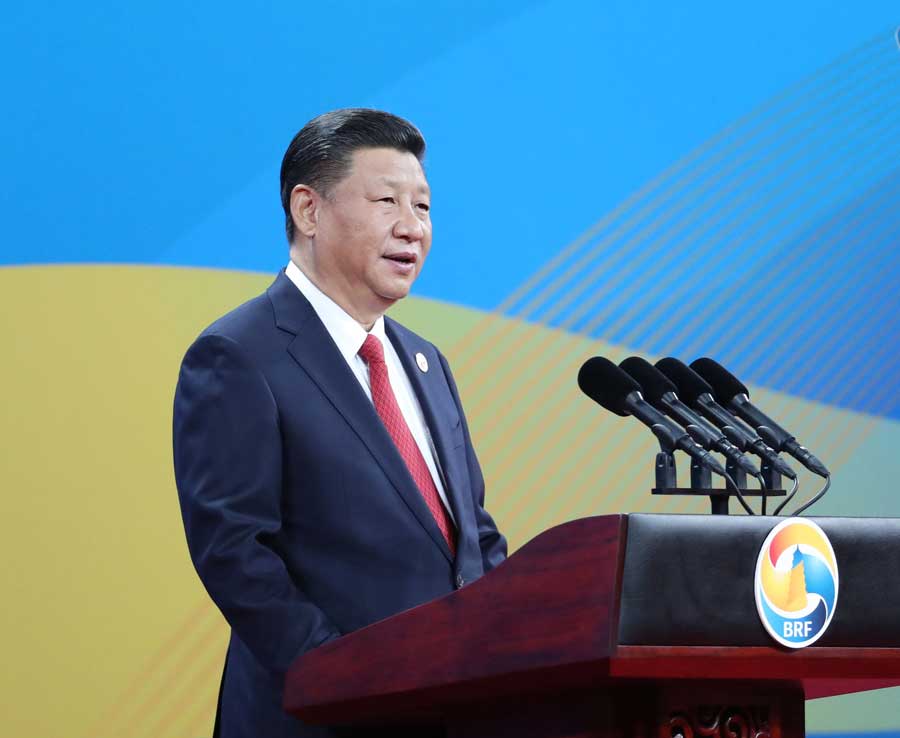Profile: Xi Jinping and his era

 |
Xi Jinping delivers a keynote speech at the opening ceremony of the Belt and Road Forum (BRF) for International Cooperation in Beijing, May 14, 2017. [Photo/Xinhua] |
Strategist behind China's reform
To push forward China's modernization in the 21st century, Xi has launched the world's largest-scale set of reforms.
About three weeks after assuming his post of CPC chief in 2012, Xi trod the same route that Deng Xiaoping took in 1992, to south China's Guangdong Province, the frontline of reform more than 30 years ago. There, Xi declared, "reform and opening up decide China's fate."
Being the top decision-maker now is no less challenging than it was in 1978. What remain after decades of economic miracles are the most obstinate barriers, such as outdated mentality, deeply-embedded institutional flaws and strong vested interests.
Many who questioned the country's future cobbled together a series of scenarios on China's outlook, ranging from an economic hard-landing to total collapse.
Xi was keenly aware of his responsibility.
"I have been anxious day and night for fear of failing the trust since being assigned the great task," said Xi shortly after taking office, quoting Zhuge Liang, a politician around 1,800 years ago, known for his strategic thinking and diligence.
Xi made his top-level design and strategic arrangements through the "five-sphere integrated plan" -- promoting coordinated economic, political, cultural, social and ecological advancement -- and the "four-pronged comprehensive strategy" -- making comprehensive moves to finish building a moderately prosperous society in all respects, deepen reform, advance law-based governance and strengthen Party governance.
He defined the current phase of China's economic development as "the new normal," which called for new solutions to growth, structure and a new driving force for the economy.
From April 2013, he led a team of officials on producing a key report for the third plenary session of the 18th CPC Central Committee, a document on deepening overall reform.



















